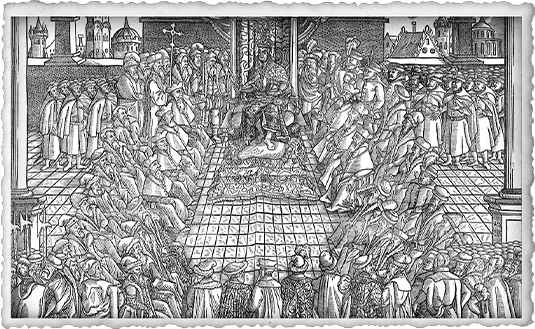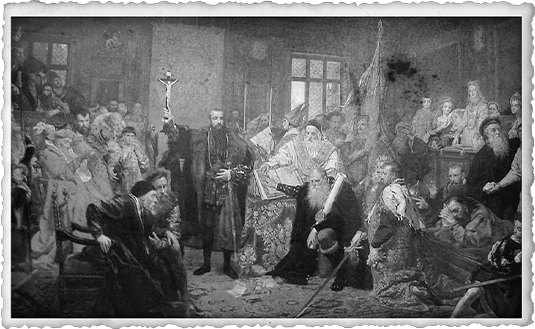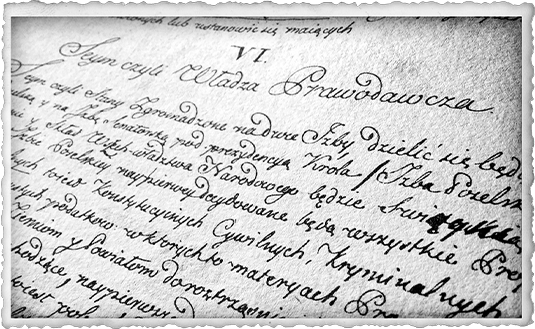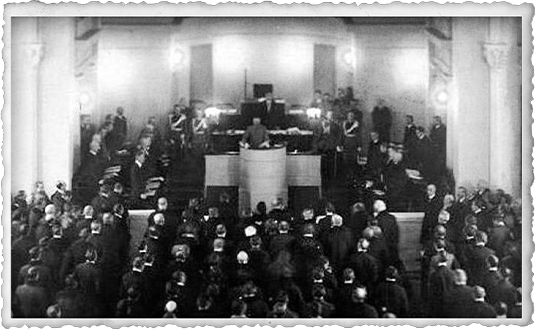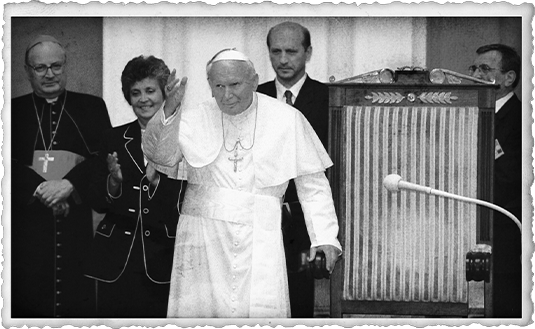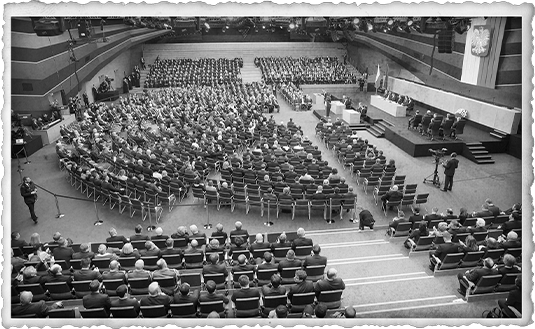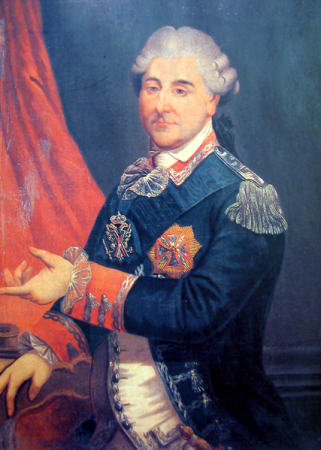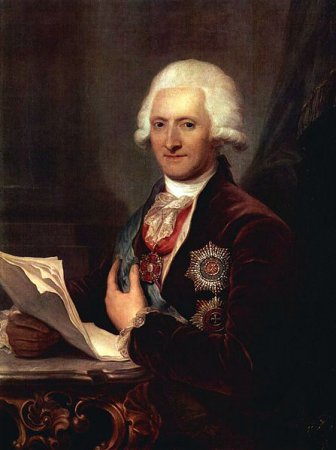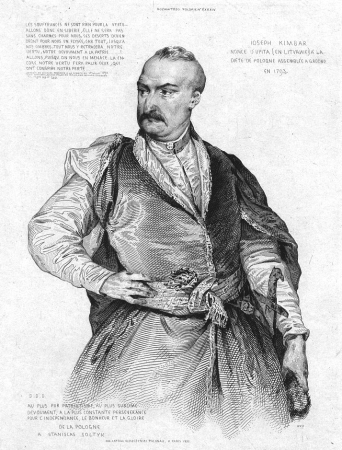The sejm of the First Commonwealth. Extraordinary Sejm in Grodno. 1793.
The Sejm was convened on 6 May 1793 by the Constant Council, which was reinstated after the war with Russia and King Stanisław August Poniatowski's accession to the confederation of Targowica in 1792. The pre-sejm Sejmiks (regional assemblies) were held in May and most of them elected unknown persons, whose election was often under duress. The session began on 21 June 1793. The Speaker of the Sejm was elected, as a result of pressure from the Russian Ambassador Severs, Stanislaw Bieliński. The subject of the Sejm sessions was the ratification of the Partitions of Poland agreements with Russia and Prussia, which took place as a result of clear pressure from the Russian troops, who surrounded the place of the session throughout the Sejm. It was common to intimidate the king and his fellow deputies, of whom more than a dozen were arrested, with the goods of the reluctant deputies being ploughed back into sequestration. During the sessions of the Sejm, under Russian pressure, changes in the political system were adopted. The power in the state was transferred to the Constant Council, which, in accordance with the Polish-Russian treaty adopted by the Sejm, was subject to the supervision of the Russian ambassador. The Sejm, in which voting by a majority of votes was maintained, was maintained, but the possibility of using a veto was ruled out. The personal inviolability of the townsmen and their right to purchase land have been preserved. On the other hand, the validity of the legal and political order from before the Constitution of 3 May, which was thus repealed, was restored, in particular the validity of cardinal laws in which the fundamental and inviolable political principles of the Commonwealth were adopted. The army was reduced to 15 000, subjecting it to Russian command. The Sejm closed its session on 23 November 1793.
See: J. Wąsicki, Konfederacja targowicka i ostatni sejm Rzeczypospolitej. Studium historyczno-prawne [The Confederation of Targowica and the last Sejm of the Commonwealth. Historical and legal study], Poznań 1952; D. Iłowajski, Sejm grodzieński roku 1793. Ostatni sejm Rzeczypospolitej Polskiej [The Grodno Sejm of 1793, The Last Sejm of the Polish - Lithuanian Commonwealth], Poznań 1872; L. Wegener, Sejm grodzieński ostatni. Ustęp od 26 sierpnia do 23 września 1793 [The Grodno Sejm - the last Sejm. Paragraph from 26 August to 23 September 1793], Poznań 1866; Ł. Kądziela, Między zdradą a służbą Rzeczypospolitej. Fryderyk Moszyński w latach 1792-1793 [Between betrayal and the service of the Commonwealth. Fryderyk Moszyński in 1792-1793], Warszawa 1993; W. Smoleński, Ze studiów nad historią sejmu grodzieńskiego z roku 1793 [Studying the history of the Grodno Sejm in 1793], Przegląd Historyczny, 1909; Ł. Kądziela, Opcja grodzieńska [Grodno option], Kwartalnik Historyczny, t. 98, 1991; H. Olszewski, O sejmie grodzieńskim 1793 roku i wydawnictwie jego diariusza [On the Grodno Sejm of 1793 and the publishing of its diary], w: Parlamentaryzm i prawodawstwo przez wieki. Prace dedykowane Prof. Stanisławowi Płazie w siedemdziesiątą rocznicę urodzin [Parliamentarism and legislation over the centuries. Works dedicated to Prof. Stanisław Płaza on the seventieth anniversary of his birth]. Edited by. Jerzy Malec and Wacław Uruszczak, Kraków 1999, p. 87-100; H. Olszewski, Porządek sejmowania w Grodnie w 1793 roku [The order of the Sejm works in Grodno in 1793], in: Parlament-prawo-ludzie. Studia ofiarowane Profesorowi Juliuszowi Bardachowi w sześćdziesiątą rocznice pracy twórczej [Parliament-law-people. Studies offered to Professor Juliusz Bardach on the 60th anniversary of his creative work], Warszawa 1996, s. 182-189; H. Olszewski, Sejm grodzieński 1793 r. jako forum konfliktów ideowych [The Grodno Sejm of 1793 as a forum for ideological conflicts], „Czasopismo Prawno-Historyczne”, t. 52, 2000, z. 1-2, s. 239-249. Legislation see: Volumina legum, v. X: Konstytucje sejmu grodzieńskiego z 1793 roku [Constitutions of the Grodno Sejm of 1793], edition Z. Kaczmarczyk with the participation of J. Matuszewski, M. Sczaniecki i J. Wąsicki, Poznań 1952.


